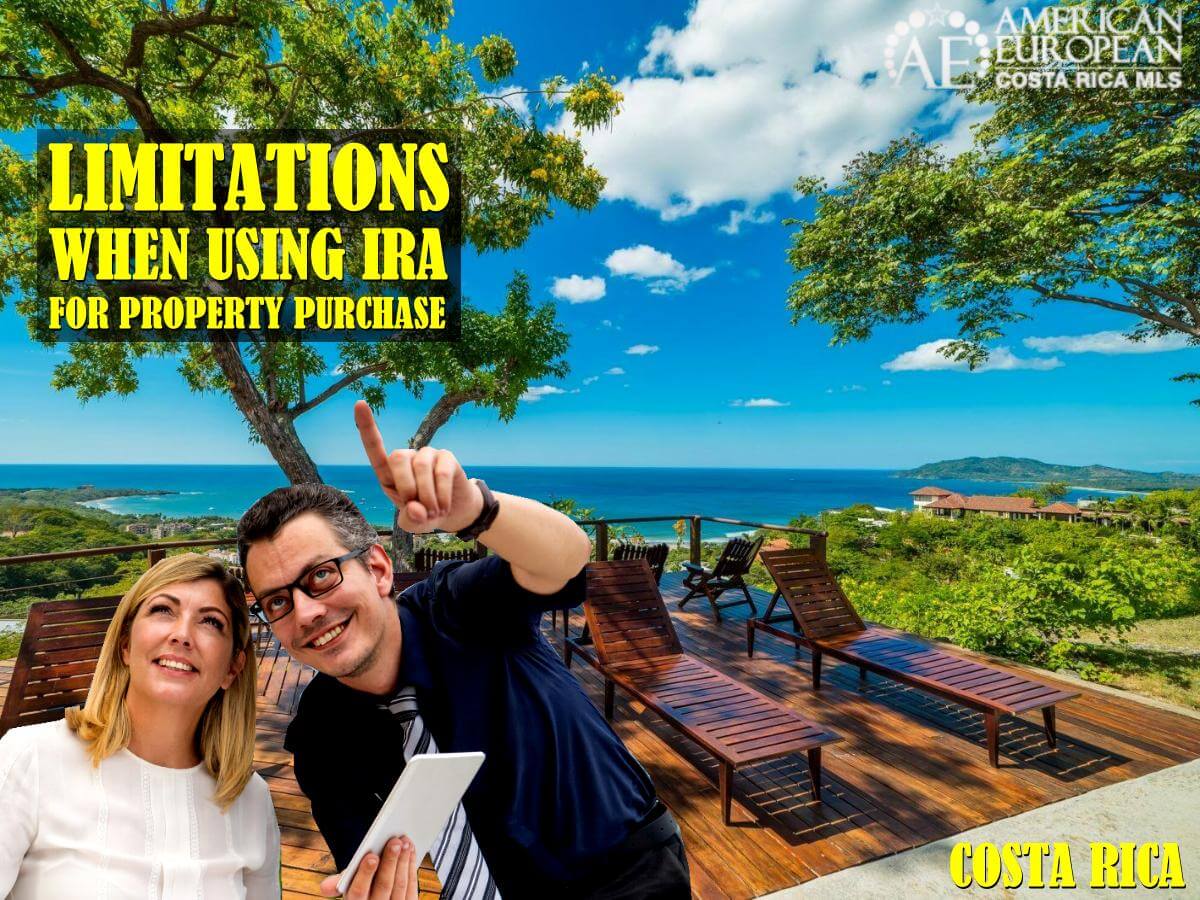Estimated Reading Time: 4 Minutes
Yes, you can invest your Self-directed IRA in property in Costa Rica, but IRA limitations can be a downside. Before using your retirement funds to invest in property, you must do some due diligence.
Often, custodians of self-directed IRAs will tell you it’s impossible to invest your funds in a property abroad. That’s not true. They inform you that because if you do, they’ll lose control over your funds and, therefore, their fees.
But, before you make any mistakes, you must first learn about the IRA Limitations when you buy real estate in another country. Many North Americans don’t know you can buy real estate in Costa Rica as an investment with your self-directed IRA.
Few real estate agents in Costa Rica know that you can realize the purchase with your retirement funds and how to do it without running into trouble. To make the purchase of property possible, you will need the cooperation of your IRA custodian and a Costa Rica real estate attorney who knows what needs to be done and how. And, of course, a real estate agent here who knows how to handle this. Unfortunately, we often receive emails from buyers trying to get information from us about this topic or asking which lawyer to use without doing business with us. If you try to save money and not hire the right people, you might end up without those retirement funds.

So, let’s see now what those IRA limitations are all about.
IRA Limitations
There are several prohibitions on how real estate can be purchased and used with IRA funds. Therefore, you should know about those IRA limitations. The IRS rules require the IRA-owned real estate to be for investment purposes only. You cannot receive funds from your self-directed IRA without penalty until you reach 59 ½ years.
Self-directed IRA
You cannot purchase real estate with a traditional IRA, only with a self-directed IRA. Nonetheless, if the self-directed IRA is set up incorrectly, you could be liable for unexpected tax liabilities or penalties. Therefore, hiring an experienced real estate lawyer to help with the process is necessary.
Investment only
The IRS only allows real estate owned by your self-directed IRA to be used strictly for investment purposes.
Property Title
The property title comments must show that the title is in the name of the IRA and not in your personal name.
Prior Ownership
You cannot sell, lease, or exchange property you own personally to your real estate IRA. Doing so is called “self-dealing,” which the IRS strictly prohibits.
Disqualified Persons
IRS rules prohibit using IRA funds to purchase real estate from a disqualified person. The rules prohibit disqualified people from using any real estate purchased with IRA funds, like a home or business. The key to understanding the primary prohibition is the term “disqualified persons.” This term is used to refer to the IRA owner and related persons – meaning:
- The IRA owner and spouse
- Ancestors (mother, father, and grandparents)
- Descendants (children, grandchildren, and their spouses)
- Including the IRA owner’s investment advisers
- Including any IRA funds trustee
- Any business in which a disqualified person has a 50 percent or greater interest.
Vacation rental investment
You and your family cannot stay there if the property is a vacation rental – Airbnb, VRBO, and others – even when not rented.
Expenses
Always ensure you have enough money in your IRA account to pay for your investment’s expenses. These include repairs, utilities, property taxes, HOA fees, and insurance. You must pay those expenses from the IRA account, not your personal account.
Improvements
Are you a handy person and love doing it all yourself? Sorry, but you need to hire someone to remodel or repair, as you’re not allowed to do that yourself.
UBIT
If you take out a non-recourse loan secured by the property, you’ll have to pay unrelated business income tax (UBIT) on any profits related to the financed portion. You can reduce or eliminate your tax bill by using depreciation and operating costs.
Return on Investment
Over the years, we have sold many properties to clients using pension funds and retirement savings plans. It’s important to understand that the ROI on a rental property here will be between 5 – 6% on long-term rentals and twice that on vacation rentals.
Please do your homework before investing your IRA funds, and pay attention to all the IRA limitations before you write a check.
Image by katemangostar and by zinkevych on Freepik


















